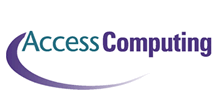I have had many opportunities to note our first keynote speaker and SIGCSE Award Winner, Randy Pausch in this blog. I apologize for my delinquency in citing our two other keynote speakers, and remedy that here and now.
 Marissa Mayer (photo left) will address the Symposium Friday morning. She is a Vice President of Search Products and User Experience at Google, reportedly the first woman hired there, and involved in many projects (including movie nights!). Most recently, Marissa was interviewed by the Chronicle of Higher Education about products for college students, administration and faculty.
Marissa Mayer (photo left) will address the Symposium Friday morning. She is a Vice President of Search Products and User Experience at Google, reportedly the first woman hired there, and involved in many projects (including movie nights!). Most recently, Marissa was interviewed by the Chronicle of Higher Education about products for college students, administration and faculty. Our luncheon speaker on Saturday is Ed Lazowska, Bill and Melinda Gates Chair in Computer Science & Engineering at the University of Washington. Professor Lazowska (pumpkin right :-) has been very active with the NSF/CRA (logo lower left) and was recently interviewed by the CRA News. You might want to check out this interview as it seems to overlap some of the points he might address at SIGCSE 2008.
Our luncheon speaker on Saturday is Ed Lazowska, Bill and Melinda Gates Chair in Computer Science & Engineering at the University of Washington. Professor Lazowska (pumpkin right :-) has been very active with the NSF/CRA (logo lower left) and was recently interviewed by the CRA News. You might want to check out this interview as it seems to overlap some of the points he might address at SIGCSE 2008. In fact, I would suggest the entire January issue of CRA news for Dan Reed's comments on research and education, as well as an article on a computer science major for arts and science students at the University of Virginia (note, my CS department resides in a division of natural science at a liberal arts college, go figure ;-).
In fact, I would suggest the entire January issue of CRA news for Dan Reed's comments on research and education, as well as an article on a computer science major for arts and science students at the University of Virginia (note, my CS department resides in a division of natural science at a liberal arts college, go figure ;-).PS: Happy Leap Day!








